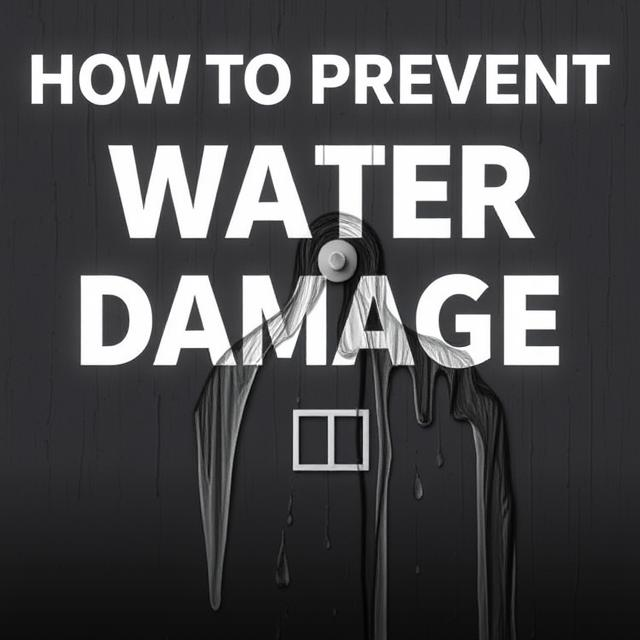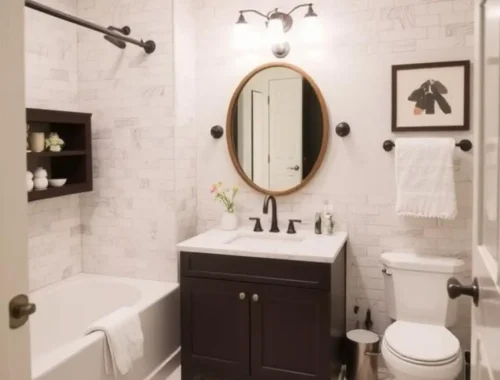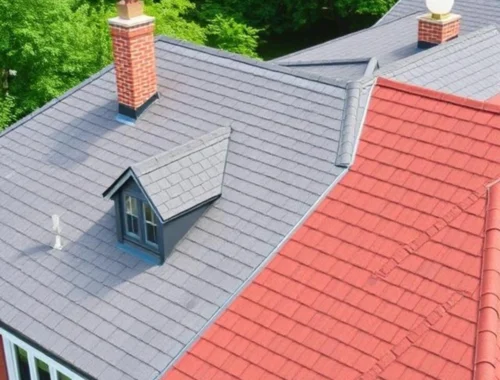
How to Prevent Water Damage in Your Home?
Table of Contents
ToggleUltimate Guide: How to Prevent Water Damage in Your Home and Protect Your Property
Water damage is a common problem that can lead to costly repairs if not addressed in time. Leaks, flooding, and excess moisture can weaken the structure of a home, cause mold growth, and ruin furniture and flooring. Many homeowners do not realize how easily water damage can occur until they start noticing stains on the walls, peeling paint, or damp smells.
Preventing water damage is much easier and cheaper than dealing with the aftermath. Taking proactive steps, such as maintaining plumbing systems, ensuring proper drainage, and using water detection devices, can protect your home from unexpected leaks and moisture-related issues.
Different locations have unique challenges when it comes to water damage. For instance, areas with humid climates, frequent storms, or temperature fluctuations require extra attention to plumbing and waterproofing. Homeowners in places like Snellville, GA, must be particularly mindful of how changing seasons affect their home’s plumbing and drainage systems.
Common Causes of Water Damage
Understanding the main causes of water damage can help you take preventive measures. Here are some of the most common reasons water damage occurs:
- Leaking pipes – Old, rusted, or cracked pipes can leak water into walls and floors.
- Burst pipes – Extreme temperatures can cause pipes to burst, leading to flooding.
- Roof leaks – Damaged or missing shingles allow water to enter your home.
- Clogged drains – Blocked sinks, toilets, or sewer lines can overflow.
- Faulty appliances – Washing machines, dishwashers, and water heaters can leak over time.
- Basement flooding – Poor drainage and heavy rainfall can cause water to enter the basement.
- Poor gutter maintenance – If gutters are clogged, rainwater can overflow and damage your home’s foundation.
Now that we know the causes, let’s look at how you can prevent water damage inside and outside your home.
Fix Leaks and Maintain Plumbing Systems
One of the most common causes of water damage is faulty plumbing. A small leak may not seem like a big problem at first, but over time, it can lead to mold growth, wood rot, and structural issues. Regularly checking for leaks in sinks, toilets, and pipes can prevent these problems before they get worse.
Bathrooms are especially vulnerable to water damage due to frequent water usage. Leaks from faucets, toilets, or showers can go unnoticed for a long time, especially if they are behind walls or under flooring. Homeowners in humid areas, such as Snellville, need to be extra cautious because moisture can accumulate quickly and lead to mold problems. Seeking professional bathroom plumbing repair in Snellville, GA, can help you address leaks before they cause significant damage. A plumber can inspect pipes, replace worn-out parts, and ensure that everything is working correctly.
In addition to fixing leaks, it’s important to take preventive measures like:
- Replacing old pipes before they start leaking.
- Ensuring that bathroom vents are working properly to reduce humidity.
- Use water-resistant sealants around sinks, bathtubs, and showers.
Protect Your Roof and Gutters
A leaky roof is one of the most damaging problems a homeowner can face. Water from rain or snow can seep through cracks, damaging ceilings, walls, and insulation. Over time, this can lead to expensive repairs.
The best way to prevent roof leaks is through regular inspections. Check for missing or damaged shingles, cracks in flashing, or clogged gutters. Gutters and downspouts play an important role in directing water away from the home. If they are blocked, water can pool on the roof or around the foundation, increasing the risk of leaks.
To maintain a leak-free roof and gutter system:
- Clean gutters at least twice a year to remove leaves and debris.
- Check the roof for signs of wear and tear, especially after storms.
- Repair small cracks or gaps before they become major leaks.
Installing gutter guards can help keep debris out and improve water flow. If you live in an area with frequent storms, reinforcing your roof with waterproof materials can also provide extra protection.
Prevent Basement and Foundation Water Damage
Basements and foundations are particularly susceptible to water damage. If water seeps into the foundation, it can cause cracks, mold growth, and structural instability. Many homeowners only notice the problem when they see water stains or feel dampness in their basement.
One of the most effective ways to prevent foundation water damage is by ensuring proper drainage around the home. Water should flow away from the foundation, not toward it. If water pools around the house after heavy rain, it may be time to improve grading or install drainage solutions.
Here are some steps to protect basements and foundations:
- Seal foundation cracks– Small cracks can let in moisture, so sealing them with waterproof materials prevents leaks.
- Install a sump pump– If your basement is prone to flooding, a sump pump can remove excess water and prevent damage.
- Check downspouts– Extend downspouts at least six feet away from the foundation to direct water safely away from the home.
Install Water Detection Devices
Technology can be a great help when it comes to preventing water damage. Water leak detectors can sense moisture and alert homeowners before the problem gets worse. These small devices are easy to install and can be placed in areas prone to leaks, such as under sinks, near water heaters, and in basements.
Some advanced water detection systems even have automatic shut-off valves. If a leak is detected, the system can turn off the water supply to prevent further damage. It is especially useful for people who travel frequently or own vacation homes.
Using water detection devices in key areas, such as:
- Under kitchen and bathroom sinks.
- Near the washing machine and dishwasher.
- Close to water heaters and sump pumps.
These devices provide an added layer of protection, allowing homeowners to act quickly if a leak occurs.
Check Appliances and HVAC Systems
Household appliances that use water, such as washing machines, dishwashers, and refrigerators, can be a source of leaks if not maintained properly. Over time, hoses and connections can weaken, leading to unexpected leaks.
To prevent water damage from appliances:
- Inspect hoses and connections every few months for signs of wear.
- Replace old hoses with durable, braided stainless steel versions.
- Ensure that appliances are on level ground to prevent water from pooling.
HVAC systems also need regular maintenance to prevent condensation buildup and leaks. Keeping the system clean and ensuring proper drainage will help avoid moisture-related issues.
Emergency Tips to Minimize Water Damage
Water leaks or flooding can cause serious damage to your home. Acting quickly can help minimize the impact and prevent costly repairs. Follow these essential steps:
- Shut off the water supply – Immediately locate the main shut-off valve and turn it off to stop the water flow. This prevents further flooding and damage.
- Move valuables to a dry area – Quickly relocate electronics, furniture, important documents, and other valuable items to a safe, dry place to prevent water damage.
- Use towels and buckets to absorb water – Contain the spread of water by soaking up excess moisture with towels, mops, and buckets. If available, use a wet/dry vacuum.
- Call a professional water damage restoration service – If the damage is extensive, seek expert help to assess, dry, and restore your home to prevent mold growth and structural issues.
Conclusion
Water damage can be devastating, but with the right preventive measures, you can keep your home safe. Regular maintenance, inspections, and quick action can help you avoid costly repairs and protect your home’s integrity.
By following the tips in this guide, you can prevent water damage and enjoy peace of mind knowing your home is protected.
FAQs
How do you prevent water damage on walls?
Waterproofing Paint: Use a sealer or waterproofing paint made especially for concrete or masonry walls. Seek out goods that are made to keep dampness out. A flexible, waterproof barrier can be applied to the wall’s surface using liquid rubber sealant.
How can I detect a water leak in my home?
You can detect a water leak by checking for signs like water stains on walls or ceilings, musty odors, unusually high water bills, or dripping sounds. Using a water leak detector can also help identify hidden leaks early.
How often should I inspect my plumbing system for leaks?
It’s recommended to inspect your plumbing system at least once a year. Regularly check under sinks, around appliances, and near water heaters for any signs of leaks or corrosion.
What is the best way to prevent basement flooding?
To prevent basement flooding, install a sump pump, ensure proper drainage around your home, and clean your gutters regularly. You should also seal basement cracks and consider a backup sump pump system.
Can clogged gutters really cause water damage?
Yes, clogged gutters can cause water to overflow and seep into your home’s walls and foundation, leading to serious water damage. Cleaning your gutters twice a year can prevent this problem.
What should I do immediately if my home experiences water damage?
If you experience water damage, shut off the main water supply, remove excess water with towels or a wet vacuum, and dry affected areas quickly. If the damage is severe, contact a professional water damage restoration service.
You May Also Like

Williams sonoma return policy
9 May 2024
Long-Term Value of a Simple and Well-Planned Bathroom Remodel
18 February 2025

